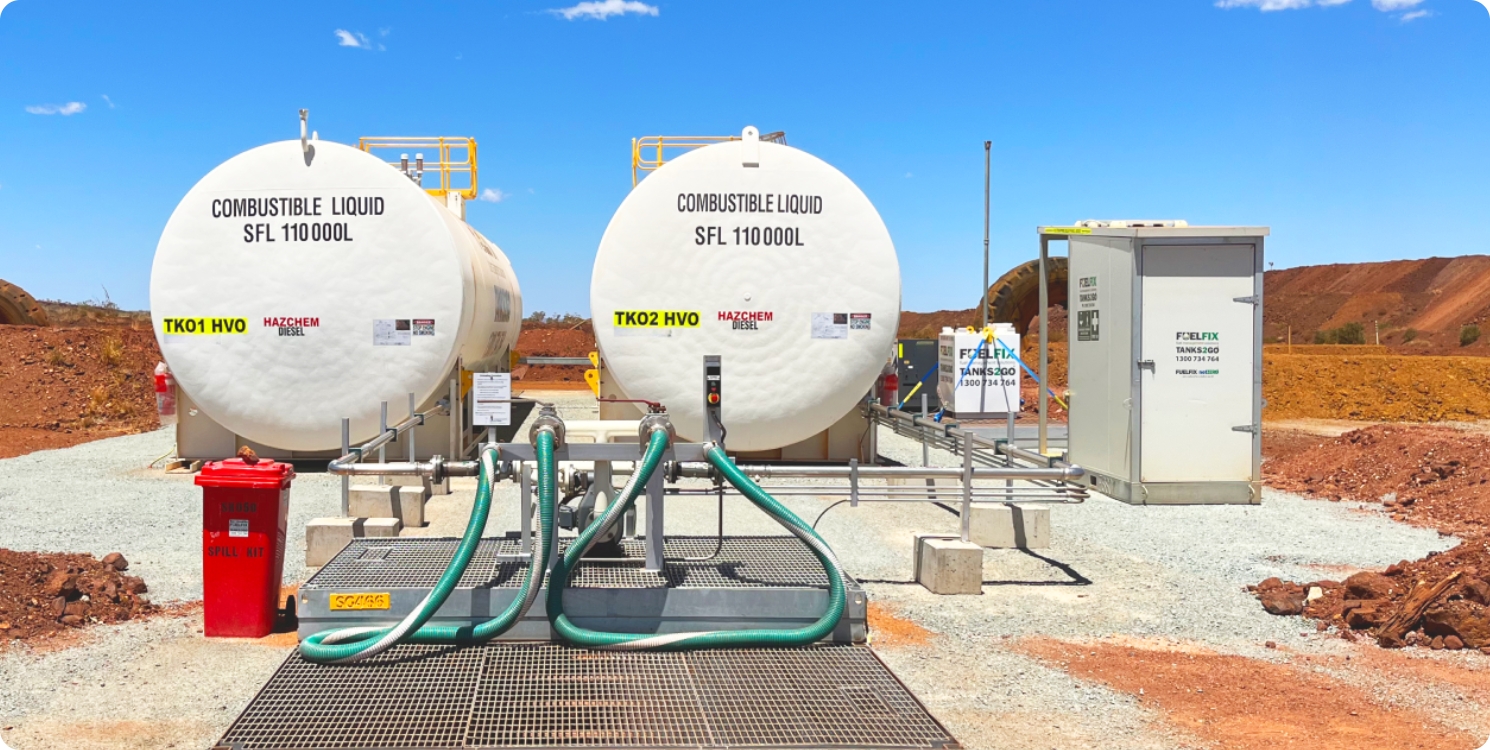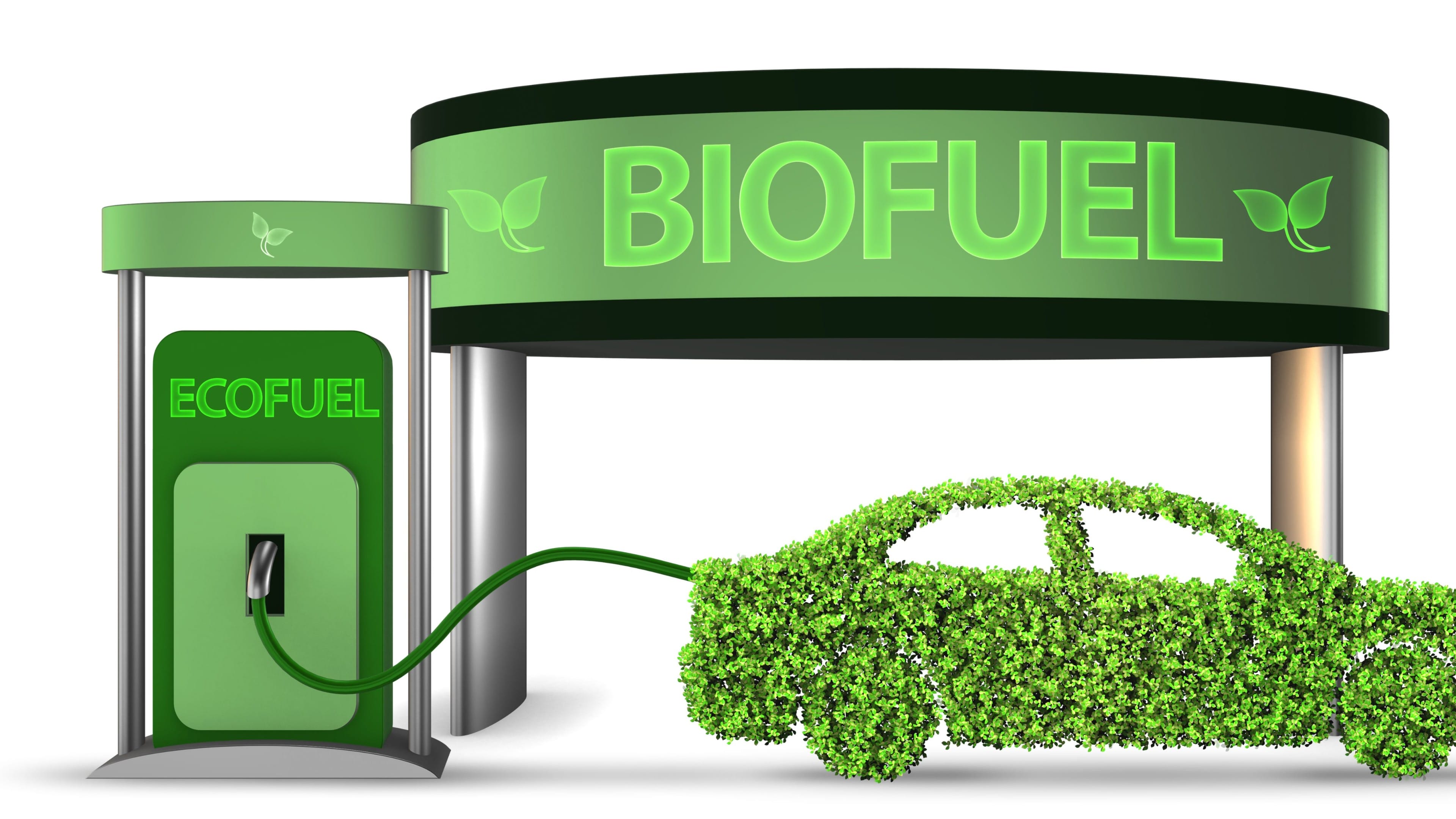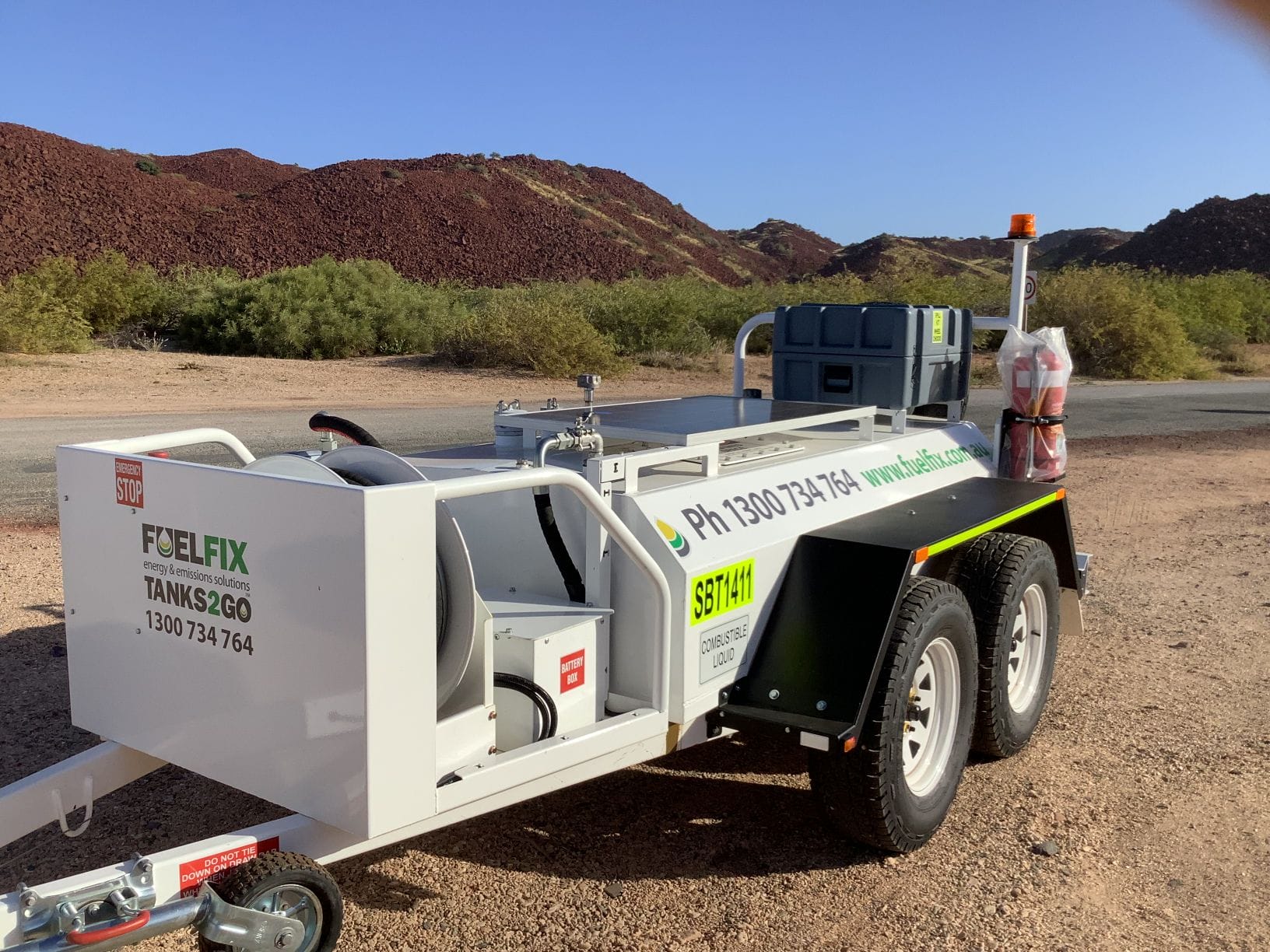
Fuelfix & Tanks2Go has made sustainability and environmental responsibility its driving force in the ever-changing landscape of the fuel industry. We recognise the rising concern about climate change and carbon emissions and understand that the path toward energy transition is lengthy and full of challenges.
We’ve committed to delivering cleaner and more environmentally friendly energy storage solutions to help our customers on their energy transition journey. Hydrotreated Vegetable Oil (HVO) is an innovative energy source that has started to make waves in our industry.
HVO is more than simply a type of renewable fuel; it is a green innovation that is globally playing a role in a more sustainable and ecologically responsible future. In this article, we’d like to discuss our story and how HVO is altering the fuel market, as well as the environmental advantages of this innovative fuel and the steps Fuelfix have taken to be ready to assist fuel users looking to adopt HVO in Australia.
The Environmental Imperative
The urgent need to cut carbon emissions lies at the heart of the HVO revolution. Some industries like Mining and Transport contribute significantly to greenhouse gas emissions, and conventional fossil fuels have long been scrutinised for their environmental effect. We are working with our customers to develop innovative energy storage solutions for alternative sources of energy like HVO, which is derived from sustainable sources such as vegetable oils, animal fats, and waste oils. Globally, HVO is being used in both its pure form and in various blends in conjunction with fossil fuel.
The capacity of HVO to cut greenhouse gas emissions is one of the key reasons this technology is gaining popularity. When compared to conventional diesel, HVO has a significantly reduced carbon impact. HVO not only reduces CO2 emissions, but it also reduces dangerous pollutants including particulate matter and sulphur emissions. With this reduction in air pollutants, the usage of HVO aids in the improvement of air quality, particularly in metropolitan areas where air pollution is a major problem.
Government Support and Incentives
Adoption of HVO is no longer only a question of preference; it is rapidly becoming a matter of policy overseas. Governments all around the globe see the necessity of switching to cleaner fuels and are enacting a variety of incentives and laws to boost the use of HVO. This includes tax rebates, pollution reduction objectives, and renewable fuel standards. Such government laws promote the use of cleaner fuels, and we are proactively positioning our business to align our operations with the requirements some customers in Australia will need or want to meet.
Economic Viability
While the environmental advantages are obvious, the question of cost is important as businesses strive to operate cost effectively. Fortunately, HVO provides a strong overall commercial proposition. Although the initial costs of manufacturing are greater than for conventional diesel, the long-term advantages frequently offset these expenses. Because of its cleaner combustion and decreased engine wear, HVO can contribute to lower maintenance costs. Longer engine life and higher efficiency will result in significant savings for fleet operators and customers.
Furthermore, as demand for sustainable fuels develops, economies of scale are projected to lower manufacturing costs, making HVO a more competitive market choice.
The Future of Sustainable Energy Use
HVO is playing an important role in transforming the fuel business as we move towards a greener future. Its environmentally favourable characteristics, together with government backing, commercial feasibility, and customer demand, make it an appealing option for the industry’s future.

Technological Advancements in Sustainable Fuels
Significant technological improvements in the manufacturing and distribution of eco-friendly fuels have occurred over the last few years. These developments not only minimise the carbon footprint, but also increase the overall performance of environmentally friendly fuels such as HVO. Fuelfix has been working on adapting its traditional fuel storage solutions to make them suitable for the more widescale use of greener fuels such as HVO. In 2023, Fuelfix collaborated with BHP Iron Ore in Western Australia to provide a bespoke fuel facility for an important HVO trial.
Meeting the Growing Market Demand
The rising market demand for sustainable fuels demonstrates that consumers and companies are moving towards a cleaner, more responsible approach to energy. We are well aware of this trend, and we are aligning our services and equipment to meet the demands of a changing market. We are able to contribute to a decrease in carbon emissions by providing innovative storage solutions for sustainable fuel alternatives to environmentally conscious consumers.
Collaboration for a Sustainable Future
Collaboration is the foundation of development in the fuel industry’s long-term evolution. We see the significance of collaborating with government agencies, environmental organisations, and other industry partners to accelerate the use of cleaner fuels. This engagement will result in more effective legislation, simpler regulations, and a more suitable environment for the development of sustainable energy solutions.
The path Towards Carbon Reduction
As we near the end of our trip through how HVO is altering the energy sector, it is evident that this transformation is being driven by innovation, customer demand, teamwork, and national cooperation. The green future is more than just a vision; it is the result of a collaborative effort by the industry and companies like ours, as well as environmentally aware individuals seeking a more sustainable and ethical approach to energy use.
We are paving the road for a brighter, greener future by collaborating with customers on cleaner fuels like HVO—a future in which the fuel industry satisfies today’s demands while protecting tomorrow’s potential. When we work together, we can change things.


